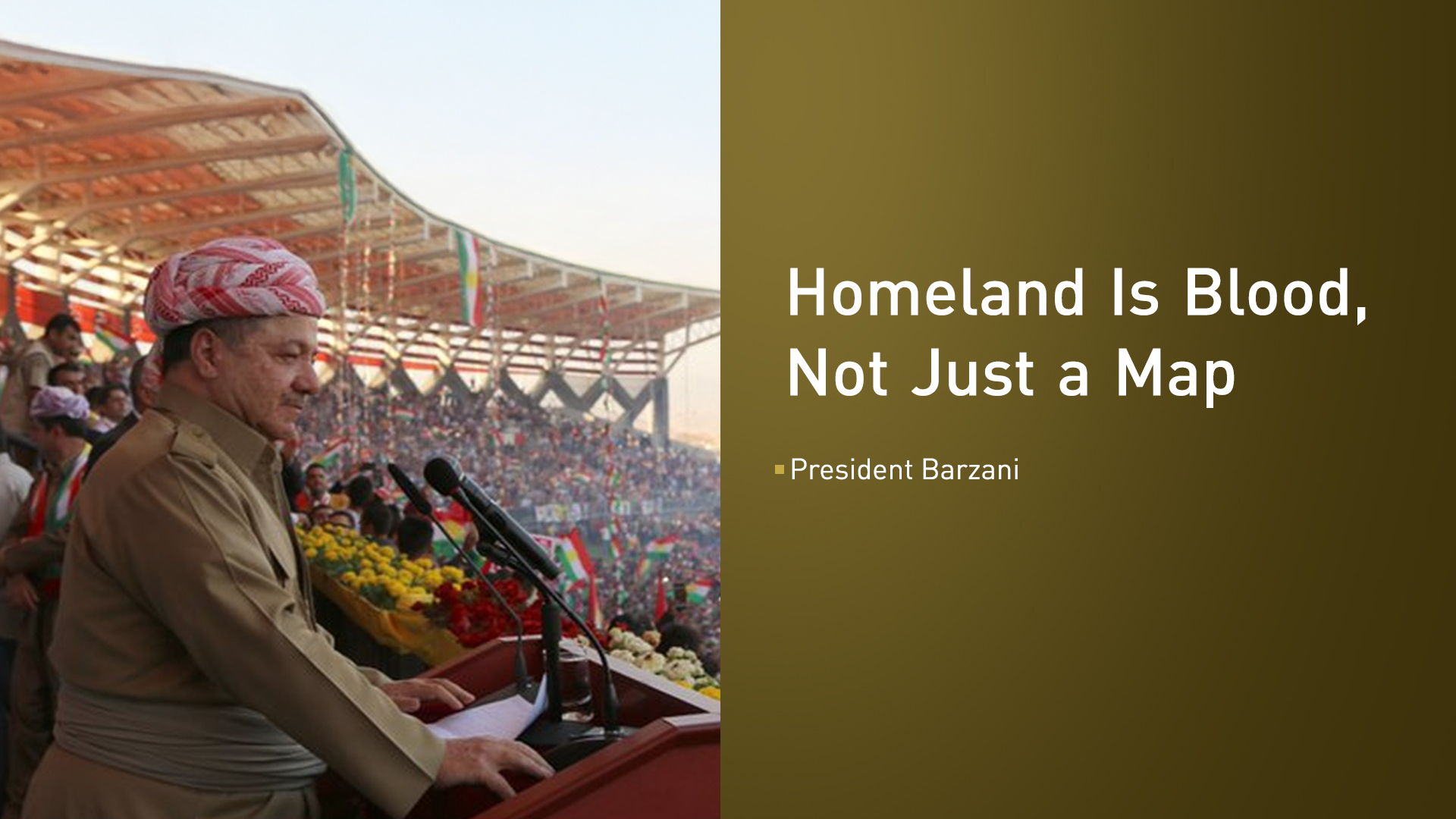'The Homeland Is Blood Flowing Through Veins': President Barzani Marks 8th Anniversary of Kurdistan Referendum
Marking eight years since the 2017 referendum, President Masoud Barzani said the homeland lives in the blood and sacrifices of its people, not on maps.

ERBIL (Kurdistan24) — On the eighth anniversary of the historic 2017 independence referendum, Kurdish leader and former Kurdistan President Masoud Barzani reaffirmed the enduring spirit of the Kurdish nation, stressing that the homeland is not merely a geographical map but the living blood and sacrifice of its people.
Posting on his official X account on Wednesday, Barzani wrote: “The homeland is not a map on paper, but blood flowing through the veins. What you plant today, you will harvest tomorrow.”
The symbolic message underscored both the cost and the promise of the Kurdish struggle for freedom, dignity, and statehood.
Earlier in the day, Kurdistan Region Prime Minister Masrour Barzani also issued a statement marking the anniversary, describing September 25, 2017, as “a day of the brave decision of the people of Kurdistan, a day of the triumph of our national will, a day of hope and optimism.”
He congratulated the people of Kurdistan, Peshmerga fighters, and the families of martyrs, paying tribute to the leadership of Masoud Barzani and the sacrifices that made the referendum possible.
The September 25, 2017, referendum stands as a watershed moment in Kurdish history. Organized by the Kurdistan Regional Government (KRG) under the leadership of President Masoud Barzani, the vote asked whether the Kurdistan Region and disputed territories should secede from Iraq.
Nearly 93% of voters chose independence, signaling overwhelming support for Kurdish self-determination.
Though celebrated by Kurds worldwide, the referendum was rejected by Baghdad, opposed by neighboring states, and met with caution by international powers who feared instability in the region.
In the aftermath, Iraqi federal forces and allied militias moved against Kurdish-held disputed territories, including the oil-rich province of Kirkuk, reversing some of the territorial gains Kurds had achieved during the war against ISIS.
Yet for many Kurds, the referendum remains a legitimate and irreversible mandate for independence. It reaffirmed their long-denied right to self-determination, while highlighting the resilience of a people who have faced decades of oppression, displacement, and struggle.
The memory of the referendum continues to shape the Kurdistan Region’s political landscape, its relations with Baghdad, and its diplomatic outreach to the world.
Eight years on, the referendum remains a milestone—an unyielding reminder of the Kurdish nation’s aspirations and its enduring hope for eventual statehood.